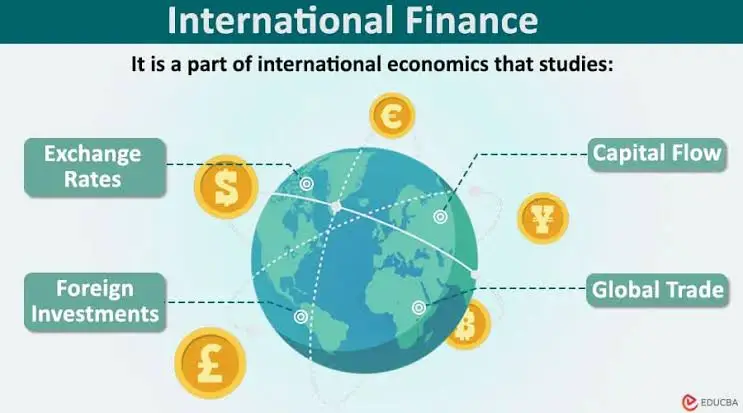
Table of Contents
International finance plays a crucial role in today’s interconnected global economy. It encompasses the management of monetary transactions that occur between countries, including foreign investments, trade financing, and exchange rate management. For businesses, governments, and individuals, understanding international finance is essential for making informed decisions in a globalized market.
In this blog, we’ll delve into the core aspects of international finance, its importance, and the challenges it presents in a dynamic world.
What Is International Finance?
International finance, also known as international macroeconomics or global finance, is the study of monetary interactions between countries. It focuses on how nations handle:
Cross-border trade and investment.
Exchange rates and their impact on economies.
Financial flows, including foreign direct investment (FDI) and portfolio investments.
It is a multidisciplinary field, combining economics, business, and international relations to understand the movement of capital across borders.
Why Is International Finance Important?
- Facilitates Global Trade
International finance enables the smooth exchange of goods and services across borders. Companies rely on financial instruments like letters of credit, export financing, and currency hedging to mitigate risks in international trade. - Promotes Economic Growth
Developing countries benefit from foreign investments and loans that spur infrastructure development and economic growth. For developed nations, investing abroad diversifies their economic activities and enhances returns. - Stabilizes Exchange Rates
Effective international finance policies help stabilize exchange rates, ensuring that global trade remains predictable and efficient. This is critical for businesses engaged in cross-border transactions. - Encourages Collaboration Between Nations
Multinational financial institutions like the International Monetary Fund (IMF) and the World Bank work to resolve financial crises, promote economic stability, and support sustainable development.
Key Components of International Finance
- Foreign Exchange Market (Forex)
The forex market is where currencies are bought and sold. Exchange rates fluctuate due to various factors, including interest rates, inflation, and geopolitical events. Businesses and governments use the forex market to manage exchange rate risks. - Foreign Direct Investment (FDI)
FDI involves investing in foreign countries through ownership of businesses or assets. It is a major source of capital for developing economies, often accompanied by technology transfer and job creation. - Balance of Payments (BOP)
The BOP is a record of a country’s economic transactions with the rest of the world, including exports, imports, and capital flows. A surplus or deficit in the BOP can impact a nation’s currency value and economic stability. - Global Financial Institutions
Institutions like the IMF, World Bank, and regional development banks play pivotal roles in international finance. They provide loans, technical assistance, and policy advice to countries in need.
Challenges in International Finance
- Currency Volatility
Exchange rate fluctuations can pose significant risks for businesses and investors. Unpredictable changes in currency values affect the profitability of cross-border transactions. - Political Risks
Political instability, trade wars, and changes in government policies can disrupt financial flows and investments between nations. - Economic Disparities
The gap between developed and developing countries often leads to unequal access to financial resources, creating imbalances in the global economy. - Regulatory Differences
Navigating different legal and regulatory frameworks in various countries can be complex and costly for businesses operating internationally.
The Future of International Finance
- Digital Currencies and Blockchain
Cryptocurrencies like Bitcoin and blockchain technology are reshaping international finance by offering decentralized, transparent, and faster financial transactions. Central banks are also exploring Central Bank Digital Currencies (CBDCs) to modernize global payments. - Sustainable Finance
The focus on environmental, social, and governance (ESG) factors is growing in international finance. Green bonds, carbon credits, and impact investments are becoming key instruments for sustainable development. - Fintech Innovations
Financial technology (fintech) is revolutionizing global finance by providing solutions like mobile payments, peer-to-peer lending, and AI-driven investment platforms. - Enhanced Global Cooperation
As the world faces challenges like climate change and pandemics, international financial institutions and governments are likely to strengthen collaboration to address these global issues.
Conclusion
International finance is a cornerstone of the global economy, enabling countries to trade, invest, and collaborate on a massive scale. While it presents challenges like currency volatility and political risks, innovations in technology and sustainable finance offer promising solutions for the future.
Whether you’re a business owner, investor, or policy-maker, understanding international finance is key to navigating the complexities of a globalized world. Staying informed about trends and developments will empower you to make sound decisions in this ever-evolving field.

